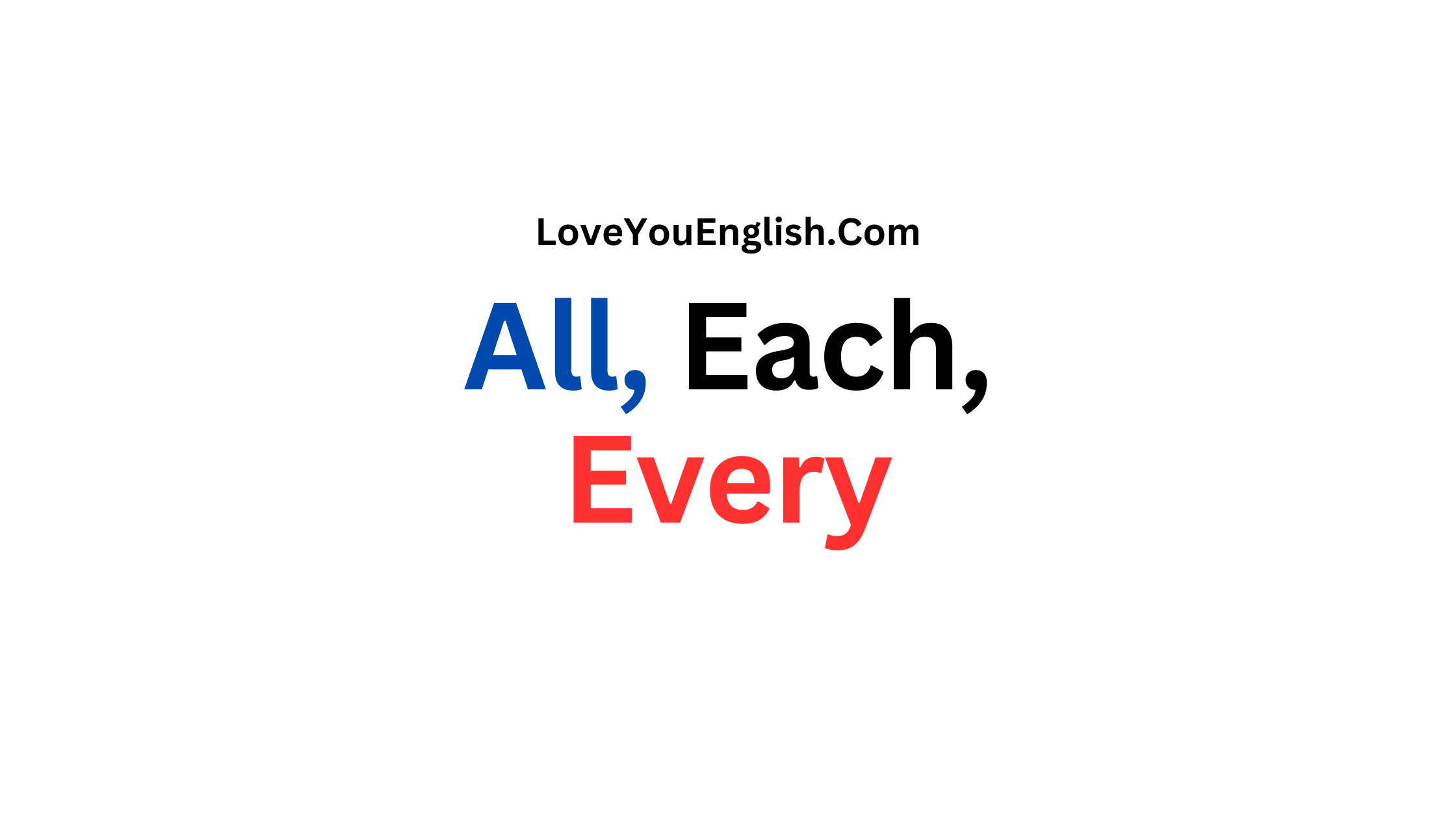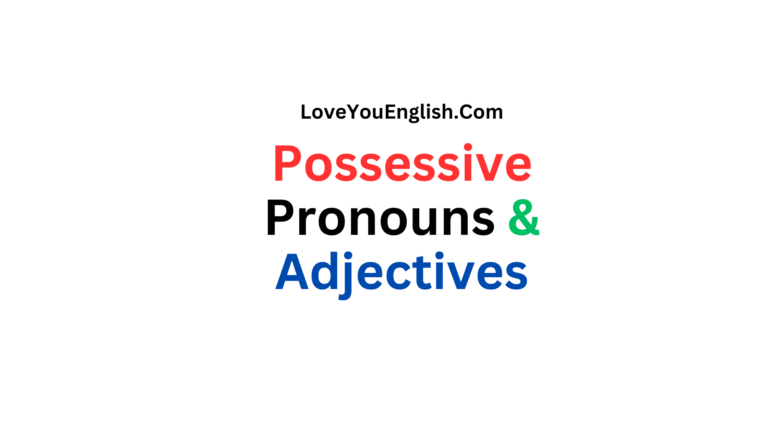Understanding the Difference Between ALL EACH and EVERY
Small words like all, each, and every can create big confusion for English learners. Although they all talk about quantity or groups, their meanings and usage are slightly different. Using the wrong one can change the meaning of your sentence or make it sound unnatural. That’s why understanding the difference between all, each, and every is important for both speaking and writing clearly.
In this blog post, you will learn the clear differences between all, each, and every with simple explanations and practical examples. You will understand when to talk about a whole group, when to focus on individuals separately, and how these words work with singular and plural nouns. By the end, you will feel more confident using them correctly in daily communication and exams.
All
Meaning: “All” means the entire amount or number of something. It refers to the whole group collectively.
Usage:
- When you want to talk about the total number of people or things in a group.
- When you mean every single one in a group taken together.
Examples:
All the students passed the exam.
-
- Here, “all” means every student in the group passed the exam. It talks about the group as a whole.
All the apples are ripe.
-
- This means every apple in the group of apples is ripe. It’s about the whole group of apples.
Key Points:
- “All” is used when considering the entire group together.
- It often comes before plural nouns or uncountable nouns.
- It can be used with “of” (e.g., “all of the students”).
Each
Meaning: “Each” means every one of two or more people or things, considered individually.
Usage:
- When you want to emphasize individuality within a group.
- When considering the members of a group one by one.
Examples:
Each student received a certificate.
-
- Here, “each” means every single student received their own certificate, individually.
Each apple was checked for ripeness.
-
- This means every single apple was checked one by one.
Key Points:
- “Each” focuses on individual members within a group.
- It is used with singular nouns.
- It suggests a sense of individuality and separation.
Every
Meaning: “Every” means all the members of a group considered individually but together. It suggests a totality but also looks at individuals within that totality.
Usage:
- When you want to talk about all members of a group but emphasize that they are being considered as part of the whole.
- When you mean all without exception.
Examples:
Every student must attend the meeting.
-
- Here, “every” means all students must attend, considering each student individually but together as a group.
Every apple is checked for ripeness.
-
- This means all apples are checked, considering them individually but as part of the group.
Key Points:
- “Every” is similar to “each” but usually used when the group is larger.
- It is used with singular nouns.
- It implies no exceptions within the group.
Table of Contents
ToggleComparing All, Each, and Every
Let’s put these words side by side to see their differences more clearly.
All vs. Each:
- “All the students are happy” means the group of students as a whole is happy.
- “Each student is happy” means every single student, considered individually, is happy.
Each vs. Every:
- “Each student has a book” focuses on individual students one by one.
- “Every student has a book” means all students have a book but emphasizes the individual within the totality.
All vs. Every:
- “All the apples are fresh” talks about the group of apples as a whole.
- “Every apple is fresh” means all apples are fresh, looking at them individually but collectively.
Practical Tips for Usage
When to Use “All”:
-
- Use “all” when you want to refer to a complete group as a whole.
- Example: “All the cookies are gone.”
When to Use “Each”:
-
- Use “each” when focusing on individual members of a group.
- Example: “Each cookie was delicious.”
When to Use “Every”:
-
- Use “every” to refer to all members of a group considered individually within the totality.
- Example: “Every cookie is homemade.”
Common Mistakes and How to Avoid Them
Mixing Up “Each” and “Every”:
-
- “Each” is better for smaller groups or when the focus is on individuals.
- “Every” is often used for larger groups or when considering everyone within the group.
- Example: Use “Each student in the class participated” for a smaller, more focused group. Use “Every student must follow the rules” for a broader statement.
Using “All” Incorrectly:
-
- “All” should be used with plural nouns or uncountable nouns.
- Example: Say “All the water is clean,” not “All the water are clean.”
Overusing One Word:
-
- Vary your language to sound more natural.
- Example: Instead of saying “Each person each brought a dish,” mix it up with “Each person brought a dish” or “Everyone brought a dish.”
Exercises to Practice
To solidify your understanding, try these exercises:
Fill in the Blanks:
-
- ______ students must wear uniforms. (every/all)
- ______ student received a medal. (each/all)
- I checked ______ the boxes. (each/all)
Correct the Sentences:
-
- All of the student is present.
- Each dogs are barking.
- Every apples were fresh.
Answers:
- Every, Each, All
- All of the students are present, Each dog is barking, Every apple was fresh.
Conclusion
Understanding the differences between “all,” “each,” and “every” can make your English more precise and clearer.
Remember:
- Use “all” for whole groups collectively.
- Use “each” for individual members in a group.
- Use “every” for all members of a group considered individually but together.
Practice using these words in your daily conversations and writing to become more comfortable with their nuances.
Soon, you’ll find it easier to choose the right word every time!






